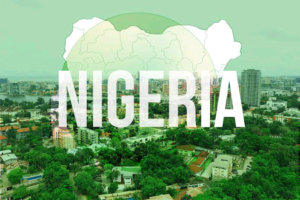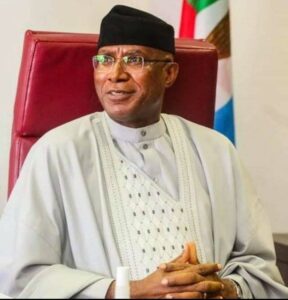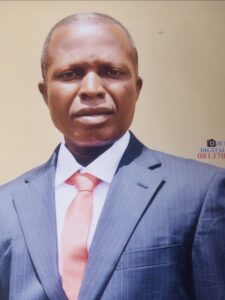THE NEED FOR THE NEW BUHARI ADMINISTRATION TO GUIDE AGAINST “PLANS ON PAPER WITHOUT EXECUTION”
By Zik Gbemre
It is often said that, it is one thing to make plans, but it is a different thing all together to bring such plans to reality. The ‘space’ between planning and execution has obviously overwhelmed many not to actualize their dreams, visions and goals. This is so true for all of us as individuals, and as a nation at large.
Over the years, unfortunately, this dilemma, has characterized every aspect of Nigeria’s economic well-being. What is even more annoying is that, despite the fact that past Economic Development plans made by various governments to improve the nation’s economy, have not seen the light of the day, yet, every now and then, more forums/conference/workshops are organized and Committees set up to make more plans or to reveal to Nigerians, Government’s plans to develop the country. Perhaps, just to create the impression that the government is working and they know what they are doing. This is not only disturbing, but it actually questions the integrity of our political leaders of not having the “vision” and what it takes to lead.
It is in the light of this, and based of the past experiences of the Nigerian people in this light, that we consider it necessary to urge the new government under President Muhammadu Buhari to seriously guard against having so much plans on papers and promises made from their lips, but without actually seeing that such plans/aspirations/promises made get to become realities in the lives of Nigerians. In other words, the new Buhari administration should break this backbone of having plans without execution to the latter in all facets of the Nigerian economy.
To this end, we strongly believe President Buhari does not need to set up any Economic Planning Committee or something of that sort. All that the President needs to do is to look at all the past Economic Plans we have had in recent past, examine them in line with current prevailing circumstances and start implementing them strictly to the latter. While it is expedient for the new government to ‘plan’, however they should “talk less” and not waste time and resources by setting up one Economic Committee or the other. But they should just focus more on the execution/implementation of past plans in the interest of the Nigerian people.
From past experiences in Nigeria, it is increasingly becoming clear that most of our political leaders at all levels of government do not have the will, commitment, the heart of service, the integrity, the charismatic spirit and the responsiveness to judiciously use the abundantly available resources in the country for the overall benefit of all citizenry. This unfortunate state of the nation is as a result of the ineptitude in the country’s political leadership expectations over the last 16 years or so. We sincerely pray that things will be different with the new Buhari administration.
We would not be mistaken to say that many of us do not even realize that Nigeria once had a dream by the name of “Vision 2020”. But who would blame us, the slogan that we have heard the former President Goodluck Jonathan government repeat frequently during their time in office was the “Transformation Agenda.” We had heard so much of that that we assumed that the agenda for transformation had swallowed up the so called vision for the big year 2020.
We all know how Vision 2020 was launched in 2009 as an Economic Plan aimed at positioning Nigeria to become one of the top 20 economies in the world by 2020. The vision planned to combine the National Economic Empowerment and Development Strategy (NEEDS) of the Olusegun Obasanjo administration and the “Seven Point Agenda” of the Umaru Yar’Adua administration to, among others, “stimulate Nigeria’s economic growth and launch the country onto a path of sustained and rapid socio-economic development and place the country in the bracket of top 20 largest economies of the world by 2020”
The parameters to measure the attainment of the said Vision 2020 goal, according to the policy document, would include a sound, stable and globally competitive economy with a GDP of not less than $900bn and a per capita income of not less than $4,000 per annum. The health sector is expected to sustain life expectancy at 70 years and reduce the burden of infectious diseases to the barest minimum, an education system that provides competent manpower and opportunities for the citizens to attain their maximum potential as well as a peaceful, harmonious and stable democracy amongst others.
Not a few Nigerians had however wondered whether our political leaders of the immediate past Jonathan government had the capacity to deliver this vision to us anytime in the next 20 years, let alone 2020; which is just five years from now. To start with, we believe that setting the 2020 target itself was either born out of some attempt to hoodwink Nigerians into thinking that something tangible was going on in the polity or the failure of people in government to realize the huge demands of such a promise, especially given the enormous burden of underdevelopment that Nigeria has carried almost forever. For example, this country of over 160 million people has battled to increase power supply beyond the 4,000 MegaWatts (MW) mark in the past 16 years or so. That is not to talk about the shamble state of our road networks; the unparalleled difficult terrain under which we do business as well as the fact that “corruption is literally a Nigerian citizen.”
To even think that we have a National Planning Commission, that is to propagate economic policies aimed at moving our great country forward, is enough insult on our face as a nation that is still greatly underdeveloped. Yet, in several occasions, the commission had organized Economic Summits/Forums in trying to aggregate the views, ideas and suggestions of stakeholders, the academia and the general public, in pursuant to effecting new economic policies that would add value to the economic well-being of Nigerians. While we acknowledge some of these Economic Summits/Forums as a welcome idea, especially if their inputs can be harnessed to re-strategize the objectives for instance; of the National Economic Empowerment and Development Strategy (NEEDS) and other programmes of such, however, we should not concentrate on such activities to the detriment of what is far more important, that is; bringing the objectives and plans to positively bear on the lives of Nigerians without ‘enriching few’ to the detriment of many.
This notwithstanding, one feels irked that the National Planning Commission is doing nothing short of throwing funds down the drain and merely creating avenues for embezzling and misusing public funds. To put it in plain words, some of the activities or exercises organized by the Commission in the past are nothing short of jamborees or merry go-rounds. And we say this with all boldness because NIGERIA’S PROBLEM IS NOT PLANNING, BUT THAT OF EXECUTION/IMPLEMENTATION. The National Planning Commission is said to be the Nigeria’s “Think Tank” and the focal point for Development Planning and Economic Management. The Commission has three parastatals namely: Centre for Management Development (CMD), National Bureau of Statistics (NBS) and Nigerian Institute of Social and Economic Research (NISER).
Year in year out, we make good plans, as witnessed by the country’s annual budget. Alas, the lofty ideas are never put to work. If they were, Nigeria would be feeding the entire African continent, going by former President Obasanjo’s Operation Feed The Nation and Shagari’s Green Revolution. By the same token, Nigerians would have been economically empowered by Babangida’s People’s Bank and Obasanjo’s Poverty Alleviation Programme or Jonathan’s Transformation Agenda. But despite all these, Nigerians still remain amongst the poorest people in the world, using price per income index as a parameter. We just pray that the Buhari slogan of “Change”, will not turn out to be like the rest of these ones.
To buttress our point, one needs to take a cursory look at the history of development plans in Nigeria. Our first ever development plan was the 1956 Development plan, drawn by a Central Development Board, which had area Development Committee serving groups of provinces. Some few years ahead, another Development plan was permanently drawn up and put into effect, to expire or elapse in 1960.
Following the march towards independence, the National Economic Council in its tenth meeting held in 1959, resolved, and decided on behalf of Nigerians that: A National Development Plan should be prepared for Nigeria with the objectives of the achievement and maintenance of the highest possible rate of increase in the standard of living. As a follow up to this broad decision, a six-year Development plan was adopted to be implemented between 1962 and 1968. At the end of the Nigerian civil war, the then Gowon administration, of which Obasanjo was a key member, decided on a three-Rs programme of Reconciliation, Reconstruction and Rehabilitation. And for this purpose, a more comprehensive Four-year-plan was launched to take effect from 1970 to 1974. Then came the so called ‘vision 2020,’ regarded as an economic plan aimed at making Nigeria to be amongst the world’s developed economies by year 2020. And later, the Transformations Agenda followed. We are already in 2015, and the lives and standard of living of many Nigerians, and the country’s economy, are even in worse conditions than they were decades ago.
The truth is, to attempt to mention all the Development plans, which every administration has drawn up till date, will be time-consuming, burdensome and boring. But one thing is clear: all the plans were aimed at:
i. Increasing the growth rate of the Nigerian economy
ii. Re-investing a significant percentage of the Gross Domestic Product Investment
iii. Developing opportunities in the education, health and employment sectors
iv. The expansion of the installed capacity of electricity generation
v. The expansion of railway mileage, tarred roads, housing, air and sea ports. Etc.
Except for specifics, the above have been the ‘broad focus’ of all our Economic Development Plans. But in spite of all the good intensions, Nigerians have remained hungry, poorly clothed and poorly housed, not to mention being made to face dehumanizing and degrading harsh environment. Indeed, the average Nigerian lives in apathy, not sure where his meal for the next week will come from. And this is no exaggeration, because if you exclude civil servants and a few salaried workers who make up less than 10% of the population, hardly any Nigerian can beat his chest and say I have enough food to last my home for the next seven days. In plain words therefore, Nigerians live from hand to mouth; with no visible future assurance of owning their own houses, cars, etc.
Not to be misquoted, let us make it clear that we are not saying that our Development Plans are not good. On the contrary, they have been excellent, exceptional and regarded by experts as highly priced objectives across the world as a nation. This is why we are urging the President Buhari administration to not waste time and resources in setting up any Economic Planning Committee but to simply sieve out the economic plans from past records that would address the economic realities we are facing today as a nation, and start implementing. We are one of the best planners in the whole wide world. The snag however, is in the implementation. Something always goes wrong between the point of planning and the final product/execution. This is what we are asking the new Buhari government to seriously guide against.
Having said that much, we want to say Nigerians, particularly our political leaders in all spheres of government, should no longer be talking of planning, but ‘effective execution/honest implementation.’ In the album titled Icon is Love, the late Barry White, the man with the most recognized baritone voice, admonished that people should “practice what they preach.” And this goes to our political leaders at all levels of government.
We should pick up all our past Economic Development Plans, that is, go back to the drawing board, and ask – what went wrong with these plans? Why is there still power outage in Nigeria? Why are our refineries not working to installed capacity? Why are tens of thousands of mileage roads across the country in a state of disrepair? Why is the Nigerian economy driven by generators and not steady and reliable power supply? Why are we so dependent on oil and gas revenue for our development as a nation? What is happening to our agricultural sector, Tourism sector, Solid minerals etc? What happened to our railway transport system? Why do Nigerians not have enough food and clothes? Why do the people not own their own homes, or be able to stay in affordable houses or drive affordable cars? Why can’t most parents and guardians afford school fees for their children and wards in the best schools? Why do we have so many university graduates’ and jobless youths on our streets looking for jobs? Why do we live in a state of perpetual insecurity? In fact, the questions are endless. But surprisingly, the answers we seek are already in most of these past Economic Development Plans.
It is a slap on our face as a nation that smaller and even less endowed countries in Africa and across the globe are far ahead of us in terms of development, human capital index, and modern advancement in all sectors. And today, many Nigerians, including our leaders prefer to go abroad to enjoy the various sectors of foreign economies; be it Education, Health, tourism, etc. imagine a country like the United Arab Emirates (UAE), in spite of their vast resources in natural minerals (just like Nigeria is blessed), they still depend on only 7% of their oil, gas and condensate revenue to develop their nation. The government gets the rest national revenue from Trading, Tourism, and Banking, etc.
Until we sit down as a nation and ask ourselves these critical questions, and find honest answers to them, we will never get to the “Promised Land” or see the Change that we all are seeking. Rather, we will continue to plan yearly, and deceive ourselves like a farmer who clears his farm of weeds but never gets around to planting any crops. To conclude, the duo of President Muhammadu Buhari and Vice President Femi Osibajo, are in the driver’s seat of Nigeria’s onward movement to development, they should strive to leave an indelible mark in their reign in office before their exit. Those coming in should also focus on rendering selfless service to their father land. Let the right thing be done as advised above, this we urge.
Zik Gbemre, JP
National Coordinator
Niger Delta Peace Coalition (NDPC)
No.28, Opi Street, Ugboroke Layout, Effurun-Warri,
P.O. Box 2254, Warri, Delta State, Nigeria.




